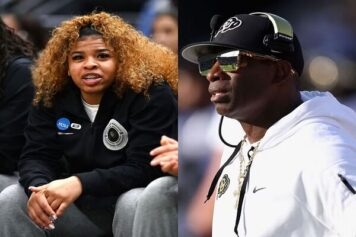Bulls.com writer Sam Smith, author of The Jordan Rules, Second Coming and There is No Next has produced another literary gem, Hard Labor: The Battle That Birthed the Billion-Dollar NBA.
This particular excerpt from the book, was printed by hoophype.com with permission from Triumph Books. It highlights the struggles for social justice and equality that African-American players endured back in the NBA in the ’60s and gives us further insight into what the expression white privilege truly entails as described from the mouth of one of the greatest white players in NBA history.
HoopsHype on Twitter
The black athletes had to be crusaders in this league and in many cases were vilified for it.” https://t.co/8Tzq0RoA56
Jerry West wasnt surprised he could safely stand in the shadow of his teammate, Elgin Baylor, and endure what he called one of the scariest moments of his playing career, that threatened All-Star Game boycott in 1964.
The thing I took from it the most, West said of the threatened All-Star Game, Elgin, Bill Russell right there, Oscar. Being naive the way I grew up in West Virginia, the owner coming in, oh my god, and Im thinking I will never play again. We walk out onto the court to play and I think, What did he just say? But for Elgin, in particular, the black athletes, they had to be crusaders in this league and in many cases were vilified for it. The people I most admire at this point in my life. I wish I did have the courage then to be more forceful, but I may not have been the one to do it. But I damn sure wasnt going to play that game. To think that day would change the landscape of a league that really was just starting to grow. Would it be a setback?
Jerry West – Living Legend
Take a look at Jerry West’s NBA highlights. Like me on Facebook: www.facebook.com/Dunkman827 Music: Ludovico Einaudi – Fly
That day has always resonated with me as one of the seminal points of this league. Like Elgin said, Were not playing. I remember him telling me, I think in Charleston, West Virginia, and they wouldnt let him in the restaurant or hotel and he wouldnt play. I really didnt know that existed. Thats how stupid I was growing up in a small town. Heres this dignified man, but he stood up for what he believed forcefully no matter the consequences. Ill admit I probably had greater respect for my black teammates than my white teammates. The respect I had for Bill Russell was off the charts, the people who were jeopardized a lot in life and never afraid to speak out. Thats what the player movement, guys like Elgin, Oscar, Archie Clark, what they were all about.
What Wests statement tells us is that though much has changed, not a lot has changed. African-American players are welcome at any restaurant and overt racism is almost nonexistent towards Black players in most instances, but there are still social struggles and institutional racism running rampant in this country, and African-American players, their family, friends and other people of color arent exempt from that treatment.
The protest issues, speaking out at award shows over police brutality and social injustice, the I Cant Breathe shirts, the Tweet wars with the President of the United States, the discussions on the best way to support the protests and the misguided backlash against the African-American players bringing these issues to light hearken back to a day when NBA players were taking stances and smack in the middle of the Civil Rights movement.
The Shadow League on Twitter
LeBron James says he doesn’t regret calling Trump “u bum.” https://t.co/fmiSiz1Puh
The cyclical nature of society holds true. The ’80s and and ’90s were a time when money was the main motivation for everyone involved. The league was producing an elevated financial windfall and its popularity was skyrocketing behind the multi-dimensional rivalry between Magic Johnson and Larry Bird and then the all-encompassing cultural phenomenon Michael Jordan, who stayed away from any social stances or opinions on social issues during his career, instead becoming the driving force behind the NBAs rising popularity, incomparable sneaker campaigns and the face of Phil Knights iconic Nike Empire.
LeBrons legacy has slowly become defined by his ability to be one of the most famous athletes in the world and maintain his popularity and marketability despite strong stances on social issues and politics. Jordan defines the NBA as a money machine and LeBron leads the era of the Conscious Players Movement.
Both approaches are a choice, but one a white player like Jerry West never had to make, but respects the courage and integrity that it takes for anyone to risk losing their careers to stand up for what they believe in. Even if it means kneeling for the National Anthem. Theres never anything cowardly in that.



